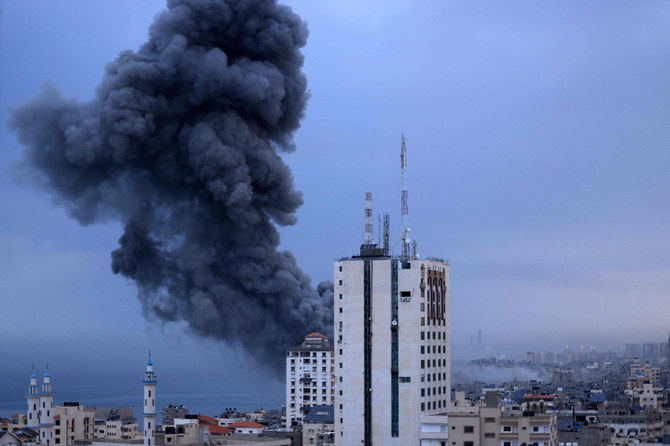
In the middle of a pandemic, rising tensions with Iran, and the Israeli prime minister sharing his time between his corruption trial and his attempts to form a government, dozens of Israeli settlers taking over houses in a Palestinian neighbourhood of East Jerusalem in the dead of night, accompanied by armed security forces, hardly made headlines.
However, the takeover by settlers belonging to the radical organisation Ateret Cohanim of three buildings in Batan Al-Hawa, Silwan, which is home to 10,000 Palestinians, was just another piece slotted in to the jigsaw puzzle of an occupation that is intent on destroying whatever chance is left for a peaceful, just and fair solution to the Israeli–Palestinian conflict.
The Israel that last week marked the 73rd anniversary of its independence is more right-wing, religious, nationalistic, and messianic than ever before. And, for the Palestinians who at this very same time of the year mark their Nakba, the catastrophe of losing their homes and in many cases their freedom and their lives, Jewish settlers creeping into their neighborhoods is just another piece of evidence that their plight is far from being over.
Ateret Cohanim is one of the veteran religious settler organisations that since the 1980s has concentrated its efforts and resources, including employing some very questionable means, to evacuate Palestinians from where they have lived for generations, and replace them with Jewish settlers. In one case, still shrouded in mystery and suspicion, Ateret Cohanim bought a landmark hotel in Jaffa Gate that has been run by the same Palestinian family for generations with the aim of evicting them and controlling this strategically valuable entrance to the Old City’s Christian Quarter.
In a visit to Batan Al-Hawa over a year ago, I was reminded of what I witnessed being perpetrated by like-minded Jewish settlers in the heart of Hebron, when they claimed houses that had been owned by Jews before 1948 and, by exploiting a legal system that by its very nature is biased toward Israel’s Jews, settled in the heart of the occupied West Bank and East Jerusalem. In both places this type of creeping occupation leads to the daily harassment and eventual expulsion of Palestinians. Following this, the settlers fortify their buildings and enjoy round the clock protection by Israel’s security forces, who by this point have limited the freedom of movement of those Palestinians who continue to live there, with the absurd claim that they are a security threat. In time this situation becomes permanent, compromising the basic rights of Palestinians with the active support of elements within the Israeli government who sympathise with the ideological aim of making Palestinians as uncomfortable as possible in their own homes.
Israeli law has since its inception established double standards when it comes to land and property for Jews on the one hand and Palestinians on the other.
In the aftermath of the 1948 war, land and property of Palestinians who had left or been forced to flee were confiscated by the state for the exclusive benefit of the Jewish population, while those who previously lived in them were not allowed to return, regardless of whether they were still living as citizens of the newly founded state or outside it.
The nexus between settlers, government, and a legal framework that hands rights to Jewish settlers and leaves Palestinians with very little recourse to law is an additional ugly side of the occupation, but also one that leaves the chance of a future peace and coexistence between the two peoples somewhere between slim and nonexistent.
Yossi Mekelberg
In contrast, land and property belonging to Jewish trusts before 1948 is managed by the Israeli General Custodian and can be claimed by Israeli Jews even if they have not been the owners. A report by the Israeli NGO Ir-Amim highlighted the strategies of Ateret Cohanim in acquiring land and properties in Batan Al-Hawa, which include employing debatable methods in acquiring them from the General Custodian or purchasing them from Palestinians.
Whether it is the case of the New Imperial Hotel in Jaffa Gate, or of Hebron, there is a strategy beyond the usual oppressive-supremacist arrogance approach of the occupier toward the occupied. Taking control of this part of the city, if successful, will constitute the largest settlement unit in a Palestinian part of the city in the Historic Basin of the Old City, linking up with other settlements to surround the Old City, and by that render a two-state solution with Jerusalem as the capital of a Palestinian state impossible. The nexus between settlers, government, and a legal framework that hands rights to Jewish settlers and leaves Palestinians with very little recourse to law is an additional ugly side of the occupation, but also one that leaves the chance of a future peace and coexistence between the two peoples somewhere between slim and nonexistent.
Among the arguments employed by Jewish settlers to justify their ever expanding and wide ranging encroachments in East Jerusalem and the West Bank are two that are utterly disingenuous. The first is that preventing them from living anywhere they choose between the Jordan River and the Mediterranean Sea constitutes discrimination against them as Jews. The second is that, in any case, what is the difference between East Jerusalem and anywhere else in Israel within the Green Line?
To begin with, Palestinians are prohibited by Israeli law from even returning to where they or their families lived before 1948, and most Palestinians have accepted the practicality of this, even if not ready to lose international recognition of their moral right to return and entitlement to compensation. This is an intolerable double standard, and one that could open up the entire partition plan for debate and discussion. Moreover, East Jerusalem and the West Bank are deemed by international law to constitute occupied land, and Israel within the Green Line was recognized by the UN. Should an independent Palestinian state ever be established, one whose capital is in East Jerusalem, anyone would be eligible to apply to reside there under the newly established state’s immigration law. For now, the settlers are imposing their presence by the power, including the illegal military power, of the Israeli state.
Another three buildings taken over by Jewish settlers may sound like no big deal compared to the vast grid of Jewish settlements and hundreds of thousands of settlers in the occupied territories. Nevertheless, those Palestinians who live there know that this is only another step in the plan to push them out or at least make them subject to the settlers’ whims, which are backed by the Israeli government. And at worst, they see no remedy for their predicament coming from Israeli society or the international community.
Yossi Mekelberg is professor of international relations and an associate fellow of the MENA Program at Chatham House. He is a regular contributor to the international written and electronic media. Twitter: @YMekelberg
Disclaimer: Views expressed by writers in this section are their own and do not necessarily reflect Arab News" point-of-view












